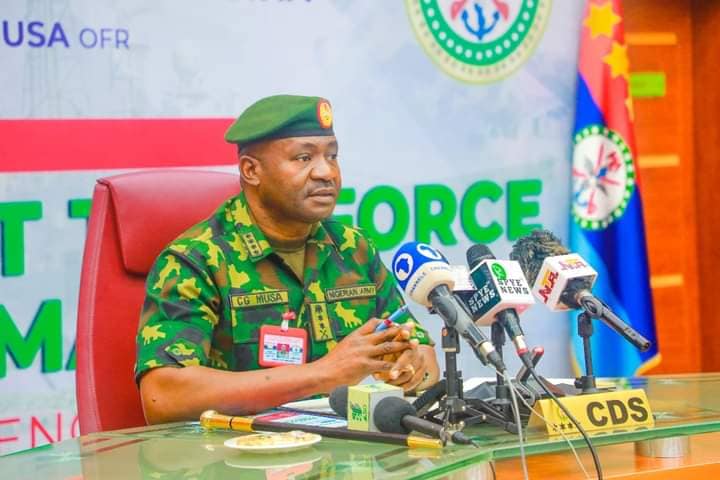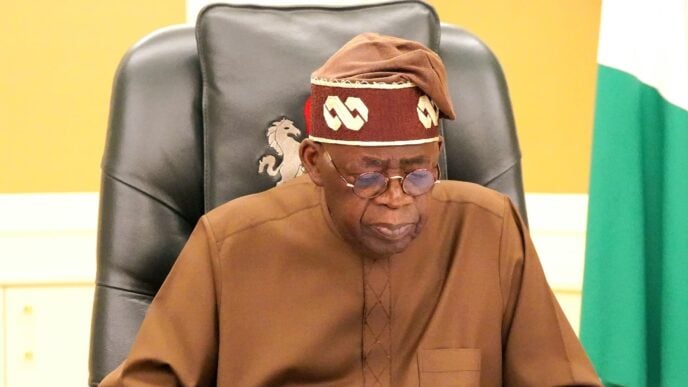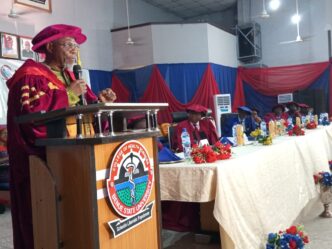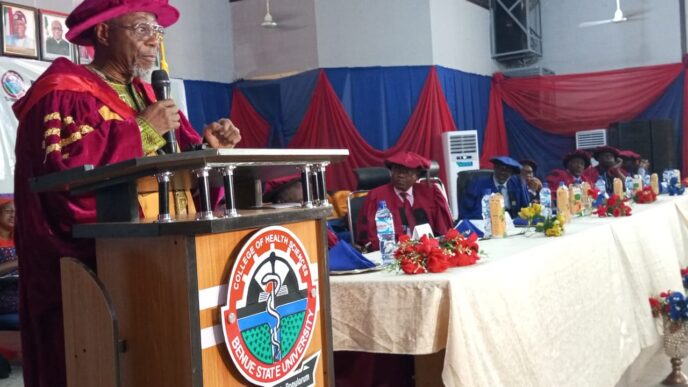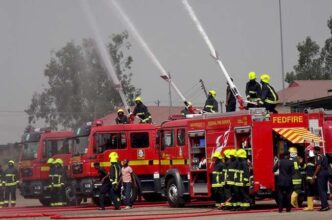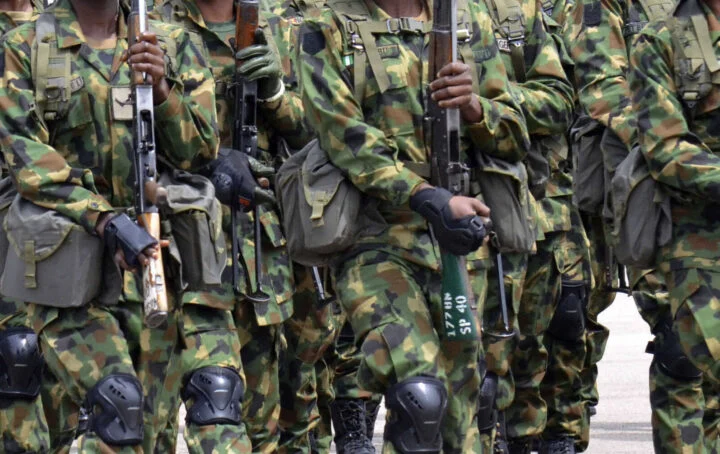Christopher Musa
Christopher Musa, chief of defence staff, says military action accounts for only 30 percent of national security requirements, with socio-economic factors taking up the larger 70 percent.
Musa spoke on Thursday at a roundtable discussion themed: “National Security and National Interest: A Development Journalism Approach for the Defence Beat”.
The CDS said there is a need to broaden the definition of national security beyond military strength to encompass social, economic, and environmental dimensions.
“In a world fraught with echoes of conflict, uncertainty, security dilemmas, ambiguous and complex geopolitical challenges, the narrative surrounding national security often emerges from a narrow lens,” he said.
Advertisement
“It is easy to find that the focus on national security is often skewed and confined to discussions of military strength as well as the immediate threats posed by hostile state and non-state actors.
“Although these views are essential, it is important that our understanding of national security is expanded to incorporate broader social, economic, and environmental elements which are hallmarks of what is termed ‘development journalism’.
“It is also necessary to note that the actions of the military in ensuring Nigeria’s national security account for only 30 per cent of the overall efforts required while the remaining 70 per cent for maintaining Nigeria’s peace and security rest on the socio-economic elements of the country.
Advertisement
“National security cannot solely rely on the Armed Forces but must be supported by an educated, healthy, and socially cohesive population.”
Musa further noted the need for collaboration between the military, journalists, and media organisations to foster national cohesion and stability.
The CDS said the defence beat should be tailored through a development journalism lens via various options including the continuous prioritisation of human security, adoption of investigative reporting on policy impact and the real-world implications as well as promoting dialogue, inclusivity and stakeholders’ engagement.
He also called for the need to advocate sustainable practices through reporting on innovative practices in defence as well as using available data to tell the stories as evidence-based outcomes allows for a more informed public discourse.
Advertisement
“These options will engender trust and cooperation between the military, civil society and other stakeholders and enhance contextual understanding of local dynamics for enhanced social cohesion and effective collaboration,” he said.
Add a comment

